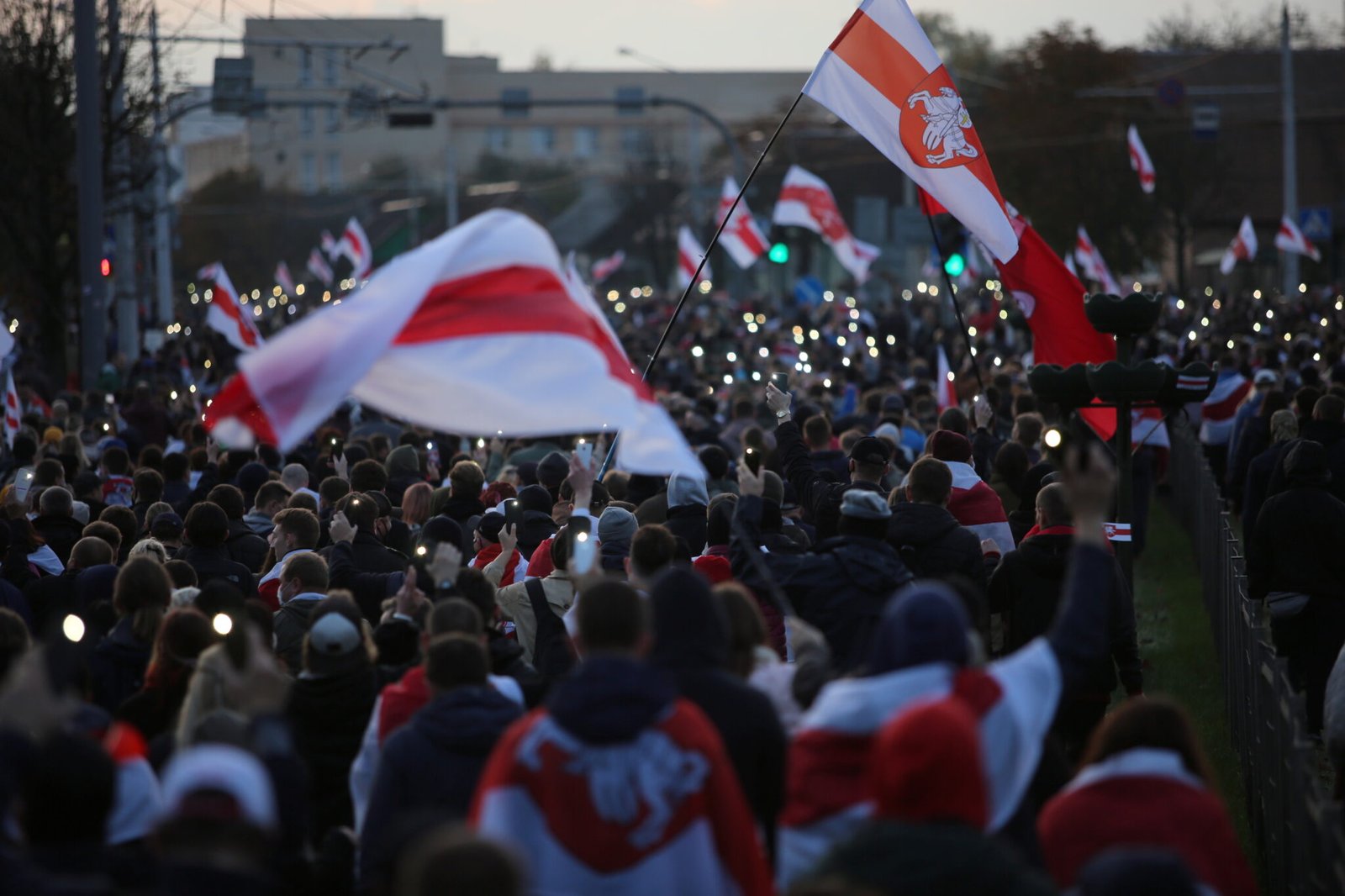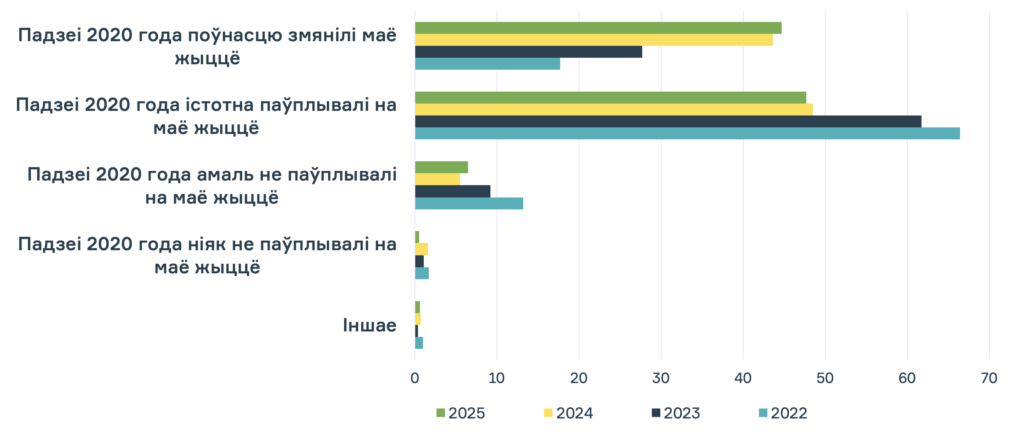
Figure 1. How significant were the events of 2020 for you personally?
Vertically:
The events of 2020 completely changed my life
The events of 2020 significantly affected my life
The events of 2020 almost did not affect my life
The events of 2020 did not affect my life at all
Other
A similar trend can be seen in how people perceive the protests’ impact on Belarusians as a whole. The vast majority of respondents, about 70%, believe that it was the events of 2020–2021 that had the greatest impact on Belarusians as a nation. In second place is the Russia–Ukraine war (17%), and in third World War II (“Great Patriotic War”) (5%).
How the Events Are Seen
As before, people do not regret how they behaved during those times. The share of those who would “act the same way” and those who would “act more decisively” has remained roughly the same over the years – around 50% and about 40%, respectively.
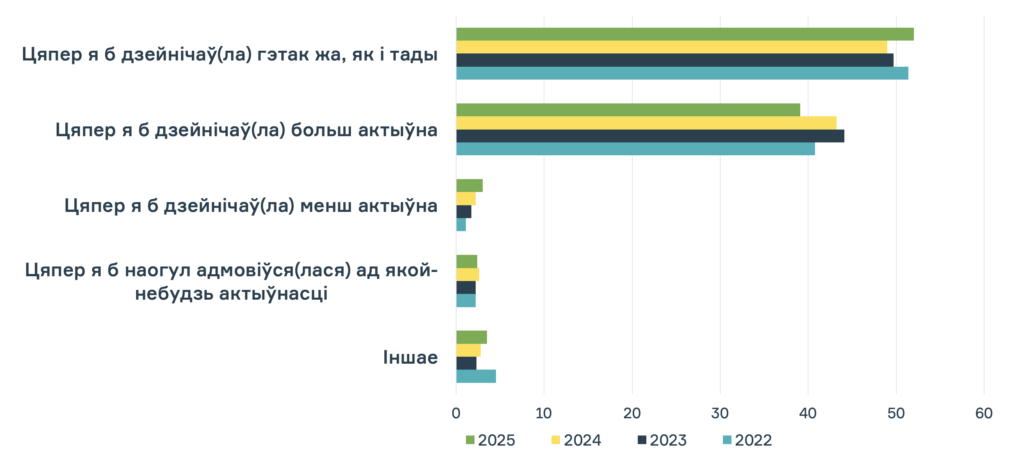
Vertically:
Now I would act the same way as then
Now I would act more decisively
Now I would act less decisively
Now I would completely refuse to engage in any activity
Other
The dominant meanings people attach to those events have also hardly changed. Around two-thirds of respondents still see the main outcome of the 2020–2021 events as “we realized that we are the majority (many)”. More than half believe that thanks to the protests, Belarusians saw the true nature of the Lukashenka regime and felt that there was hope and belief in the possibility of change.
Confidence that “the protest has not yet been defeated” also remains strong, with at least about half of respondents still holding this view and the share remaining almost unchanged in recent years.
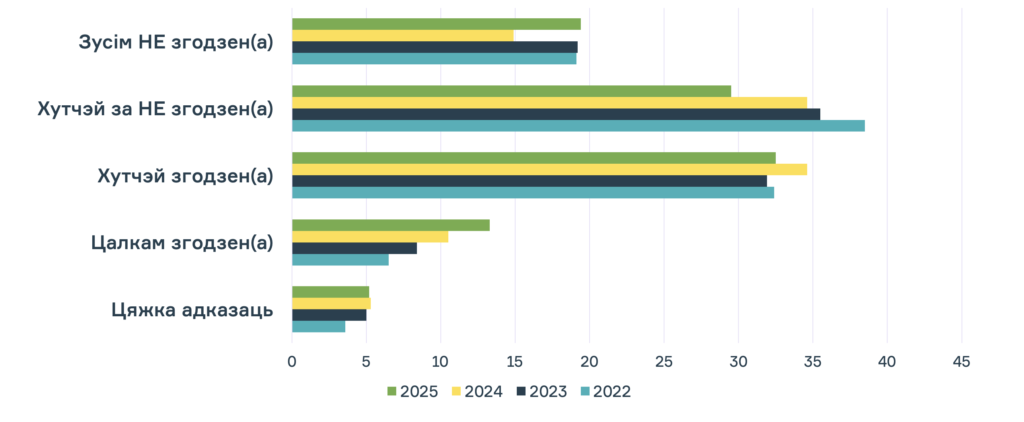
Vertically:
Completely disagree
Rather disagree
Rather agree
Completely agree
Hard to answer
Consensus also persists regarding the main reasons that prevented the protest from winning. First is the support the Lukashenka regime received from Putin – 79%. Second is the regime’s excessively strong security apparatus – 58%. At the same time, more people are now saying that “the protests were poorly organized and lacked coordination” (29% in 2022 versus 37% in 2025). The view that the protests lacked leaders, or that the leaders were too weak, is also becoming more common (24% in 2022 versus 36% in 2025).
The Emotional Background Is Changing
Overall, the emotional coloring of the 2020–2021 events remains, but some elements have shifted. One feeling, in particular, has grown stronger as the primary response to those events – pride and respect, now at 68% (up 9% since 2023). In second place are anger and rage, chosen by 51% of respondents (down 7%). Third are grief and pain – 38%. Compared to 2023, the share of those selecting “emotional uplift, optimism” grew by 7%, while those choosing “despair, helplessness, hopelessness” dropped by 10%.
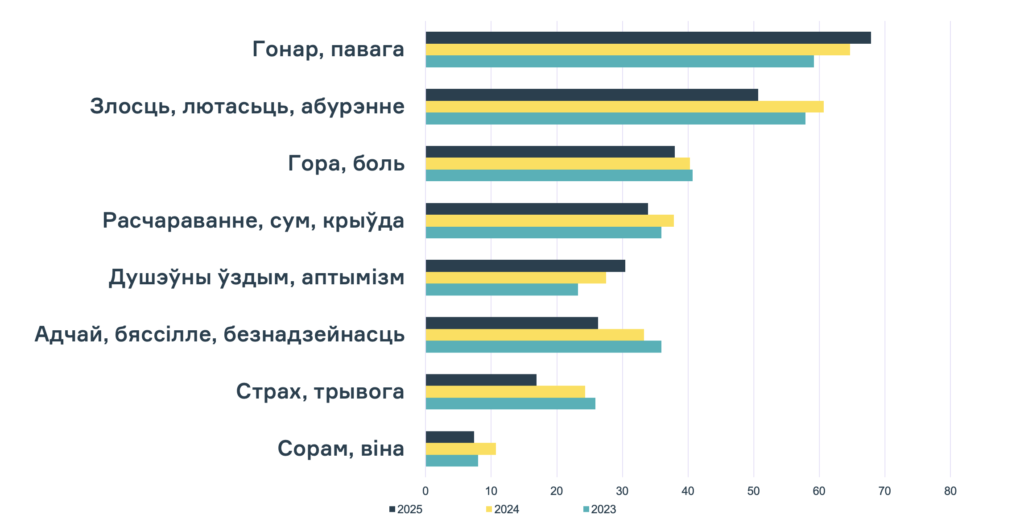
Vertically:
Pride, respect
Anger, rage, indignation
Grief, pain
Disappointment, sadness, resentment
Emotional uplift, optimism
Despair, helplessness, hopelessness
Fear, anxiety
Shame, guilt
At the same time, the events of 2020–2021 are gradually receding into the past, their emotional background fading, and, figuratively speaking, they are no longer as much of a “trigger.” Over the past years, the share of those who experience “flashbacks to 2020” has dropped by 15%. Those who feel anxiety about the personal consequences of these events have decreased by 18%.
Repression Continues to Expand
Human rights reports show that the authorities continue repression while concealing its true scale. The survey indicates that between 2023 and 2025, the number of people who personally faced repression increased by 15% – from 49% to 64%. The share of those whose relatives, family members, or friends have in some way suffered from the actions of security forces also rose – from 78% to 87%.
From 2022 to 2025, the proportion of respondents who have someone from their close circle currently behind bars also grew. In 2022, this was 39%, but by 2025 it had reached 57%.
Attitudes Toward Leaders in Exile
In the political sphere, Sviatlana Tsikhanouskaya remains the undisputed leader (recognized by almost 100% of respondents, trusted by 85%). In second place, with a considerable gap, is Pavel Latushka (known by 93%, trusted by 63%).
Third and fourth places are shared by Siarhei Tsikhanouski and Franak Viacorka. The first is known by 85% of respondents and trusted by 35%; the latter is known by 80% but trusted by only 41%.
The two main political organizations are the Office of Sviatlana Tsikhanouskaya and the United Transitional Cabinet. The Office is known by 92% and trusted by 78% of respondents; the Cabinet is known by 63% and trusted by 38%. They are followed by the Coordination Council and the National Anti-Crisis Management (CC – known by 68%, trusted by 31%; NAM – known by 60%, trusted by 38%).
Finally, the top three civic initiatives respondents are most familiar with and view as useful are:
- Cyber Partisans;
- Kastus Kalinouski Regiment;
- Viasna Human Rights Centre.
Photo: REUTERS/Stringer/Scanpix/Leta
Author: Henadz Korshunau
